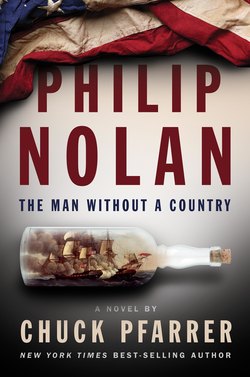Читать книгу Philip Nolan - Chuck Pfarrer - Страница 8
На сайте Литреса книга снята с продажи.
ОглавлениеAuthor’s Note
FOR THE HERO OF THIS NOVEL I GIVE CREDIT TO A SUPERIOR MIND AND MORE graciously fluent pen. Philip Nolan was the protagonist of a short story entitled “The Man Without a Country,” first published in The Atlantic Monthly in 1863. Its author, Edward Everett Hale, set his story during the presidency of Thomas Jefferson and cast as his arch-villain a real-life Revolutionary War hero turned renegade—Aaron Burr. In Hale’s story, Philip Nolan, a young Army officer, becomes embroiled in Burr’s plot to invade the lands of the Louisiana Purchase.
“The Man Without a Country” was a magazine piece, barely seven thousand words. To make the story into a novel it was necessary to expand the plot, add characters, and shamelessly indulge a lesser author’s whim. Though charting a course as close to history as possible, I have retained a novelist’s prerogative, creating a sister ship to USS Constitution and naming her what I pleased. Naval historians will also see that a very real act of valor, the cutting out of USS Philadelphia, has been both dislodged in time and attributed to fictional heroes.
Edward Everett Hale created in Philip Nolan the first antihero in American literature. Though treated harshly by the court that judged him, the peculiar severity of Nolan’s sentence makes him worthy of our sympathy. Two hundred years before “extraordinary rendition,” Philip Nolan was made into a sort of stateless prisoner, a fate and judicial status still chillingly relevant at the beginning of the twenty-first century.
In Hale’s account, Nolan becomes a sort of Flying Dutchman, never touching land, forgotten by his country, a broken man who would die repentant after decades at sea. In Philip Nolan, the reader will discover a different fate for America’s first secret prisoner.
